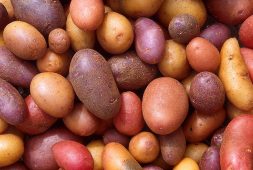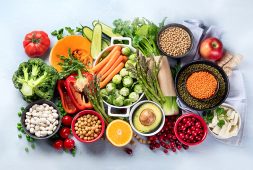
Due to an increase of people worldwide suffering from inflammatory bowel disease, otherwise known as IBD seems to be going hand in hand with particular dietary patterns used in the West.
What clinicians have found is that for those that eat ultra-processed foods, they could be greatly compromising their gastrointestinal (GI) tract health. Although they are still attempting to confirm their findings, yet they lack the necessary evidence.
Still, a recent multinational study has so far given good evidence that shows how consuming highly processed foods and beverages on a regular basis is found to be associated with those suffering from inflammation and IBD.
Notably, IBD tends to be more prevalent in first world or more affluent countries rather than in nations considered to have an average of lower median income households. Regardless, cases of IBD continue to rise in developing countries where ultra-processed foods are becoming much more popular and available.
Gastroenterologists have suspected for many years that ultra-processed foods could be responsible for inflammation and IBD. Yet, there are not too many clinical studies that have taken a closer look at this inference on a bigger scale.
But just recently, there has been a multinational prospective cohort study that has looked into the relationship between consuming ultra-processed food and the risk of someone developing IBD as a result.
The study, which was published in the British Medical Journal, was led by assistant professor of medicine at McMaster University in Hamilton, Canada, Neeraj Narula, M.D.
What Exactly is Inflammatory Bowel Disease (IBD)? Inflammatory Bowel Disease (IBD) is an umbrella term that covers a group of diseases which cause chronic inflammation in the gastrointestinal (GI) tract. Diseases such as ulcerative colitis and Crohn’s fall under this category.
Statistics show that around 3 million people within the United States have been diagnosed and are living with IBD. Although a number of studies share that there are genetic risk factors that lead to the disease, there is also tons of new evidence that claim dietary patterns have caused the cases of people being diagnosed with IBD to rise.
According to gastroenterologist and author, Ashkan Farhadi, M.D., MS, FACP, he describes IBD as “a disease of wealthy nations.”
This is because he believes that as certain societies manage to progress economically, they end up abandoning their traditional ways of ‘growing, preparing, and preserving foods in favor of grabbing conveniently packaged products.’
When asked in an interview by Medical News Today, Dr. Farhadi described the new study as the ‘first cohort work pinpointing processed foods as the culprit driving IBD development.’
He also noted beforehand that, “there was no actual research demonstrating what happens [to gut health] as a nation becomes better off economically.”
He also applauded the research team for including ultra-processed drinks and not just foods, which many other research studies have failed to do.
A Closer Look at Ultra-Processed Food
According to the NOVA food classification system, there are four categories of foods. These include the unprocessed and minimally processed foods, processed ingredients, processed foods, and ultra-processed foods.
Ultra-processed foods mostly include the mass-produced foods and beverages such as those that contain food additives like preservatives, flavorings, emulsifiers, trans fats, colorings, and added sweeteners.
Co-founder of the ZOE nutrition program, author and epidemiologist at King’s College London in the United Kingdom, Professor Tim Spector, explained his thought with MNT on ultra-processed foods.
He alleges that adults within the United States eat more ultra-processed foods than any other nation or country across the globe. He also shared that these types of food make up over 60% of US adults’ caloric intake within the country as well.
Calculating IBD Risk and Food Consumption
Dr. Narula and his research team evaluated the medical data of over 116,000 adults between the ages of 35 to 70 years. The study participants were from 21 low, middle, and high income nations throughout North America, South America, Africa, Southeast Asia, South Asia, Europe, China and the Middle East.
They were asked to complete a food frequency questionnaire every 3 years at least from the years 2003 to 2016.
In their reports, they said that their food intake was of “all types of packaged and formulated foods and beverages that contain food additives, artificial flavorings, colors, or other chemical ingredients.”
Following the completion of their baseline questionnaire, the main outcome of the study showed diagnoses of IBD. Those participants from South America, North America and Europe recorded higher numbers of eating ultra-processed foods than those from other nations and regions. Notably, the IBD instances in these three regions was higher as well.
It’s Possibly Processing Problem
From their early research, they found that particular foods increased the risk of developing IBD later on.
One example is the highly popular low FODMAP diet which encouraged people suffering from IBD to stay away from foods that contain high levels of certain sugars.
But what Dr. Narula’s team did not deduce was ‘that higher consumption of ultra-processed foods and drinks increases the likelihood of developing IBD.’ Meanwhile, the study also failed to confirm whether there is a ‘causal link between ultra-processed foods and IBD development.’
While the high consumption of ultra-processed foods has been linked with a higher prevalence of IBD, when it came to the same type of food but in unprocessed form, they did not have the same risks. In conclusion, the researchers claim that the high risk of IBD comes with ‘the processing of the foods.’
Study Limitations
According to the study authors, there are a number of limitations that may have affected the outcome of their research.
The first is that the food questionnaires that were answered by the participants ‘may not assess absolute intake.’ Yet they also note that they managed to get the “high vs. low” intake of the food categories that were in question.
Another limitation was that the study authors were unsure of whether their findings – which were from subjects that were aged at least 35 years and above, can be applied to children or young adults that are diagnosed with IBD.
This same age range of the participants in the study could have also led to a limited ability to figure out the risk factors for Chron’s disease.
While the study did not account for any dietary modifications of the study participants over time, their reported dietary patterns were seemingly stable the entire time.
But due to the observational nature of this particular study, it could have left ‘some residual bias due to unmeasured variables’ like the participants’ antibiotic use as children, or other unknown factors.
Working For Better and Healthier Food Choices
As for Dr. Narula and his research team, they hope that more research will give them a clearer view of the way ultra-processed foods can trigger IBD.
ZOE co-founder, Prof. Spector says “most clinicians and gastroenterologists believe the quality of the diet is really important for health.”
He also shares his belief that it’s the consumption of “low quality” food that actually disturbs the gut microbes and therefore weakens a person’s immune system in the process. This can trigger the inflammatory overreactions that are linked to a number of common diseases.
What Prof. Spector is hoping this study, as well as his own work in personalized nutrition which can be seen in the ZOE project, is that it will encourage people to be more proactive and mindful when it comes to their food choices. He also shares that he hopes physicians will advise their patients on ways to better assess or gauge the quality of food.
He explained, “[We’re] trying to educate people to what’s in the food, [to] start thinking about food a different way […] – not just as calories, fats, or proteins, but actually, what are all these chemicals doing to your body?”



